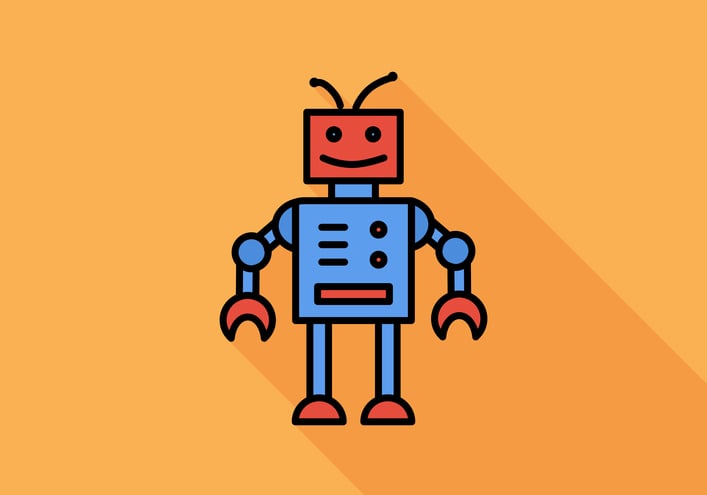This Is the Most In-Demand Skill of the Future
The future of work belongs to those who possess emotional and social skills. Here's why.

When artificial intelligence (AI) can diagnose a patient's condition with greater accuracy than a human doctor, what becomes of doctors?
This is a question I present to my audiences when they ask me, "What skills will Gen-Z need in the future?"
In the AI-abundant world of tomorrow, where technology will do much of the heavy lifting, a doctor's ability to deliver compassion and empathy to a patient will become much more valuable. While the technical hard skills of doctors will remain important, their emotional intelligence will take on new significance.
The Industrial Revolution required muscle from its workers. The Information Age traded muscle for mental capacity, which explains the rise of "knowledge workers." The future will require workers to be emotionally intelligent.
Emotional intelligence is the capacity to be aware of, control, and express one's emotions, and to handle interpersonal relationships judiciously and empathetically.
As the world fills with more sophisticated AI and ubiquitous technology, human skills--compassion, empathy, etc.--will define the competitive edge of workers and entire organizations. So those interested in thriving in a high-tech world must put renewed prioritization on emotional intelligence and soft skills.
Soft skills represent the top three missing skills of job applicants, according to the Society of Human Resource Management's (SHRM) "2019 State of the Workplace."
The top six missing skills in job applicants are:
-
Problem-solving, critical thinking, innovation, and creativity (37 percent)
- Ability to deal with complexity and ambiguity (32 percent)
- Communication (31 percent)
- Trade skills (carpentry, plumbing, welding, machining, etc.) (31 percent)
- Data analysis / data science (20 percent)
- Science / engineering / medical (18 percent)
The significance of developing and applying social and emotional skills is growing. Soft skills are twice as predictive of a student's academic achievement as home environment and demographics, and 30-40 percent of jobs in growth industries require soft skills. Additionally, 57 percent of leaders say soft skills are more important than hard skills.
A recent Wall Street Journal article, "Wanted: Employees Who Can Shake Hands, Make Small Talk," explained the importance of social and emotional skills this way:
"New jobs, meaning those not killed off by automation, require substantially more social skills than the manufacturing and factory jobs that once powered the economy. Robots still can't be friendly, make small talk and calm disgruntled customers, which offers opportunity for people. Turns out a lot of them aren't very good at it, either. Bank of America has developed a national training program to help its employees show empathy. Tellers don't deposit paychecks or handle withdrawal slips anymore, given the dominance of online banking."
Employers aren't looking for the same level of deep knowledge and technical skill as they did in the past. In fact, 90 percent of employers say they are open to accepting non-traditional candidates that do not hold four-year college degrees. And they are more open to hiring candidates with a recognized certification (66 percent), complete certificate (66 percent), an online degree from a massive, open online course (MOOC) (47 percent) or a digital badge (24 percent).
At IBM, as many as one-third of U.S. employees lack a traditional four-year degree. And according to César A. Marrero, CEO of Xentient Technology, "Today we are looking more at students with a two-year degree to hire, because they have the baseline knowledge we need and can further expand their skills with our specialized in-house training."
In addition, 40 percent of employers believe artificial intelligence will help fill the skills gap.
The prevalence of AI will only make social and emotional skills more necessary and valuable because they are the skills robots can't automate. In today's fast world, hard skills have a short shelf life, but strengthening the social and emotional skills of your workforce will never go out of style, and soft skills are more transferable across careers and industries.
As a Millennial and Generation Z keynote speaker and trainer, I help companies lead, engage, and sell to the emerging generations. If you'd like help solving tough generational challenges inside your organization, click here.

